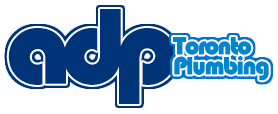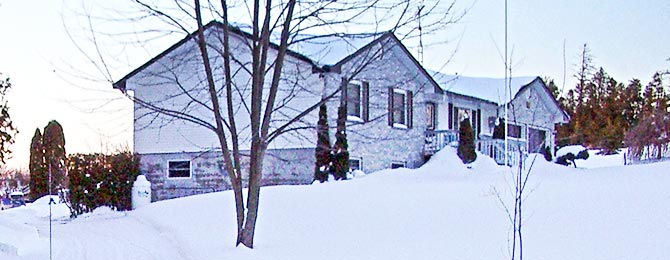It’s that time of year when many homeowners close up and go to warmer climes for a sun-filled vacation away from the Toronto cold. We board our pets, turn off the heat and lock the door as we head out. The last thing we think about is our residential plumbing system! It will still be there on our return, right? Well, yes – but if Murphy’s paying attention it might be in a very different shape to how we left it. Before you leave, take steps to protect your plumbing during your absence and you won’t find your time away disturbed by reports from your neighbors of flooding on your property.
Main Water Supply
Your best bet to prevent an overflow of your residential plumbing system is to close off your main water supply completely while you’re gone. If you know where to do this, turn it off at the source and then open all the cold water faucets to let the pipes run dry. This also helps to prevent pipes from freezing and bursting if they’re exposed to cold weather. If you aren’t able to turn the water off at the main inlet, call your local plumber to do so or simply close all the angle stops on the lines supplying your sinks, toilets and washing machine, as well as the ice maker in your refrigerator if you have one.
Hot Water Heater
If you are going away for a long period of time such as two weeks or more, turning off your hot water heater will save the energy it takes to keep the water warm. If the water isn’t used it won’t need refilling, but if you’re concerned at all about the tank bursting then you should check with your plumber before deciding on a course of action. Most modern hot water tanks won’t release their contents unless there is water entering, to prevent them from burning out, so you’ll need help if you want to empty it.
The best course of action for your residential plumbing system is simply to power down the heat using the vacation setting, if your hot water heater has one. This usually lowers the temperature and keeps the pilot light on, without heating all the water in the tank constantly. On your return, make sure you allow 2 to 3 hours for it to heat up fully before using the water.
Toilet Valves
It’s only necessary to shut the toilet valves if you can’t turn off the main water supply. Toilets often have minuscule leaks that cause the water to run through from the tank into the toilet bowl. Although this is unlikely to cause an overflow, it can rack up the water usage of your residential plumbing system tremendously during your absence. When you’re home and the toilet is being used periodically, a lesser amount of water is leaked uselessly because the tank needs to fill completely each time it’s flushed. When you’re away, however, the constant running through uses large quantities of water which you may be billed for.
Outdoors
By far the biggest risk to the absent homeowner is the flooding caused by a big storm. You can help prevent this by making sure your drainage system is cleared just before you go. Remove any dead leaves and other debris that might still be hanging around from the Fall, and check that outdoor drain covers are fitted securely. Also, make sure that the water supply to your garden hose connection is closed and the pipes are emptied – an easy thing to forget given the balmy winter we’ve had so far in Toronto.
Take measures to protect your plumbing system that seems appropriate, depending on the length of time you plan to be away and whether you have anyone checking on the home. For complete peace of mind, have a full residential plumbing inspection done before you go and you’ll be able to rest assured that you won’t come home to water damage and expensive repairs?

